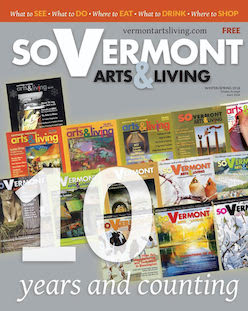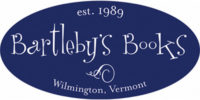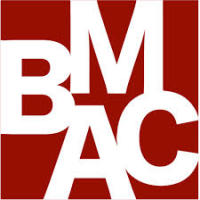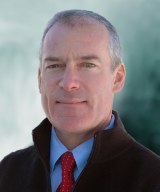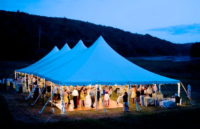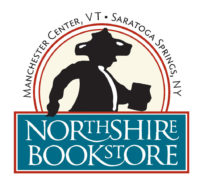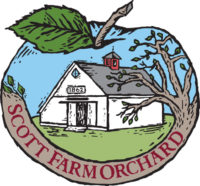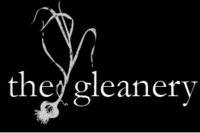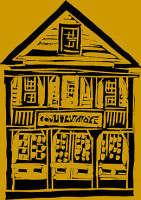By Peter Gould
The life of a self-employed artist in Vermont has its ups and downs. It can be tough. You have good times and bad times—and sometimes the good times and the bad times are one and the same.
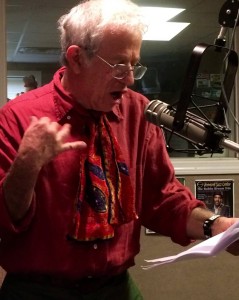
Peter Gould, winner of the Ellen McCulloch-Lovell Award in Arts Education from the Vermont Arts Council in November, reprises his acceptance speech — which he described as a “slam poem” — on WKVT radio.
Let me tell you about the work I have done for the past 40 years: arts in education. I’ll tell it like a poem… Like a work of art!
I call it the Slow School Movement!
They say schools today, they’re trying to reach, trying to teach a student who no longer exists. So many students are hooked by other bait: phones and screens and social networks, and carried with them a huge commercial influence upon their desires, their styles and habits of speech and dress and thought… so that, when you try to hook a roomful of them with outmoded content you’re doomed to be largely unsuccessful—except to a small portion of the class who may be more tolerant, more open, more curious. Maybe they come from households where old-fashioned discussion and expression are the norm. But if you hook only those people you continue the existence of an elite class.
But we artists are some of the only people in the state who are both poised and equipped to make and bait the hook that will pull all children in. Hundreds of school teachers have told me that! So we’re gonna have most of our students in the building from about 8 to 3; that is a lot of young human energy contained in a tight place. So we have got to have art activities ready and supported and paid for, of many different types, to be a central part of daily education. The kids will pay attention. They will find means of true self expression. They will behave. They will!
But, it’s like time, you know: How are you going to take all those young people schooled to think of time as being imposed from outside, by grown-up educators, in broken-up and broken-down schedules and little modules with predicted goals and parameters and rubrics and outcomes and tests, and short attention spans and no reflection at all, never reflect: just quick shut down, pass on, and move on to the next module, and get them used to a whole different kind of attention? Deep attention supported by mentors and artists, the time it takes for honest creative expression in a multiplicity of art forms to take hold in a personality and then explore, flourish, grow complex and then be shared—but not for profit…
It’s kind of like food, you know: How are you going to take all those young people raised on fast food, cardboard food, food from far away, food with chemicals and GMOs and residues of insecticides and tons of sugar and bad oil in it, and get them used to a whole different kind of diet? Slow, organic, local, balanced, small, slender, healthful, tasty meals…
It’s kind of like speech, you know: How are you going to take all those young people exposed to violent speech, and hair-trigger hot reaction, superficial feelings like quick, unthinking anger, or a stand up joke and a laugh track, unexamined racism and misogyny, bullying, ego display, and get them used to a whole different kind of communication? Non-violent speech, active listening, conciliatory thinking, mindfulness, team building, finding your own honest voice for the measured thoughts you’re thinking and for the effective adult you yearn to be…
It’s kind of like justice, you know: How are you going to take all those young people raised on threat, and punishment, mental and physical abuse, and good behavior and bad behavior, and society’s need for security, and a legal system benefiting the wealthy and secure, and falling harder on people of color, and get them used to a whole different kind of living together? equality of opportunity, mediation, conflict transformation, restorative justice, no solitary confinement, no mass incarceration, no “for-profit!” prisons, no rounding up of immigrant children, no high school to prison pipeline…
It’s kind of like love, you know, and binary gender: How are you going to take all those young people raised on the unloving battlegrounds of contraception and a woman’s right to choose, taught to think of women’s bodies as sex objects, raised on Photoshopped images of slim-waisted, big-breasted women used to sell products, and exploitation porn just a click or two away on the internet, confirming unequal power relations, and unreasonable expectations for how intimacy is going to look and feel, and get them used to relationships of love and sharing and steadiness and women in full command of how their bodies are used and everyone of all kinds equal, strong, self-actualized, living and loving in community, solidarity…
We’re asking to start a Slow School Movement right here in Vermont, with teachers and schools all mobilized with the awesome community of artists we have here living in the hills, towns, forests, cities of Vermont, who not only need work, but who need fair compensation for our work, and who need the opportunity to lock into the lives of our young people right away with the approach to problem-solving, honest expression, imagination, spontaneity and creativity that only an artist can bring!
Vermont! We artists in education are putting our diverse shoulders to the wheel!
Peter Gould, a longtime Vermont theater worker, popular Green Writers Press author, founder and director of “Get Thee to the Funnery” Shakespeare camps (a statewide youth enrichment program), and half the bill of Gould & Stearns, delivered these remarks in accepting the Ellen McCulloch-Lovell Award in Arts Education Nov. 15, 2016, at The Putney School. The prize is presented annually to an individual who has made “a sustained contribution to learning in and through the arts, and has had a positive impact on the quality of education in Vermont.” The award is named in honor of the former executive director of the Vermont Arts Council and retired president of Marlboro College.




